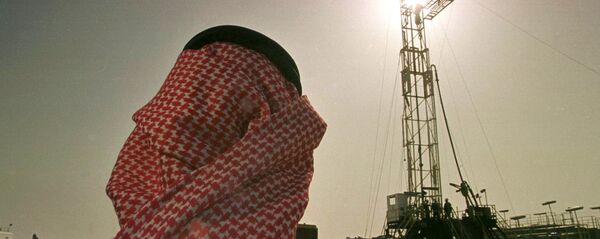"Saudi Arabia is interested in selling shares to raise revenue while oil prices are low," Brown University Professor Jeff Colgan told Sputnik on Monday. "The country is running a huge fiscal deficit, and this is one way to plug that whole."
Riyadh’s strategy to sell assets to cover government revenue needs, however, is fiscally irresponsible, Colgan, author of "Petro-Aggression: When Oil Causes War," added.
"Saudi officials are of course justifying the sale for reasons of management efficiency, transparency… but I think that’s mostly rhetorical cover for the fact that they are selling a piece of their best asset during tough economic times," Colgan explained.
The Saudis have stated publicly that they intend to only sell a minority stake and keep complete decision-making control in their hands, Colgan observed, so the Aramco IPO is unlikely to affect global oil markets.
Climate change could be another driver of the Aramco IPO, Colgan claimed.
"The Saudis benefit by selling shares in two ways: diversifying their risk — selling some shares before they lose value — and also widening the political constituency that stands to lose financially from strong environmental policies," Colgan suggested.
Ball State University Professor of Economics Cecil Bohanon told Sputnik that the Saudi budget and reserve position were deteriorating because of the drop in oil prices, hence part of the motive may be to shore up cash reserves, although it is not the only reason.
"I think a more important reason is for the Saudis to obtain information about how much their assets and reserves are actually worth and what impact their policy moves both in[side] and outside the oil industry imply for that wealth," Bohanon argued.
By allowing 1 percent of their total assets to float in the equity market the Saudis can get an immediate "read" on what world events, changes in Saudi policy and changes in US policy do to their national wealth as reflected in the stock price.
"It seems to me consistent with a realization that with the long run prospect for oil prices bearish, they [Saudis] had better be more scrupulous about managing the assets they have," Bohanon concluded.
On Monday, US West Texas Intermediate crude and Brent crude futures tumbled to a 12-year low amid global overproduction and new concerns over China’s stock market.




